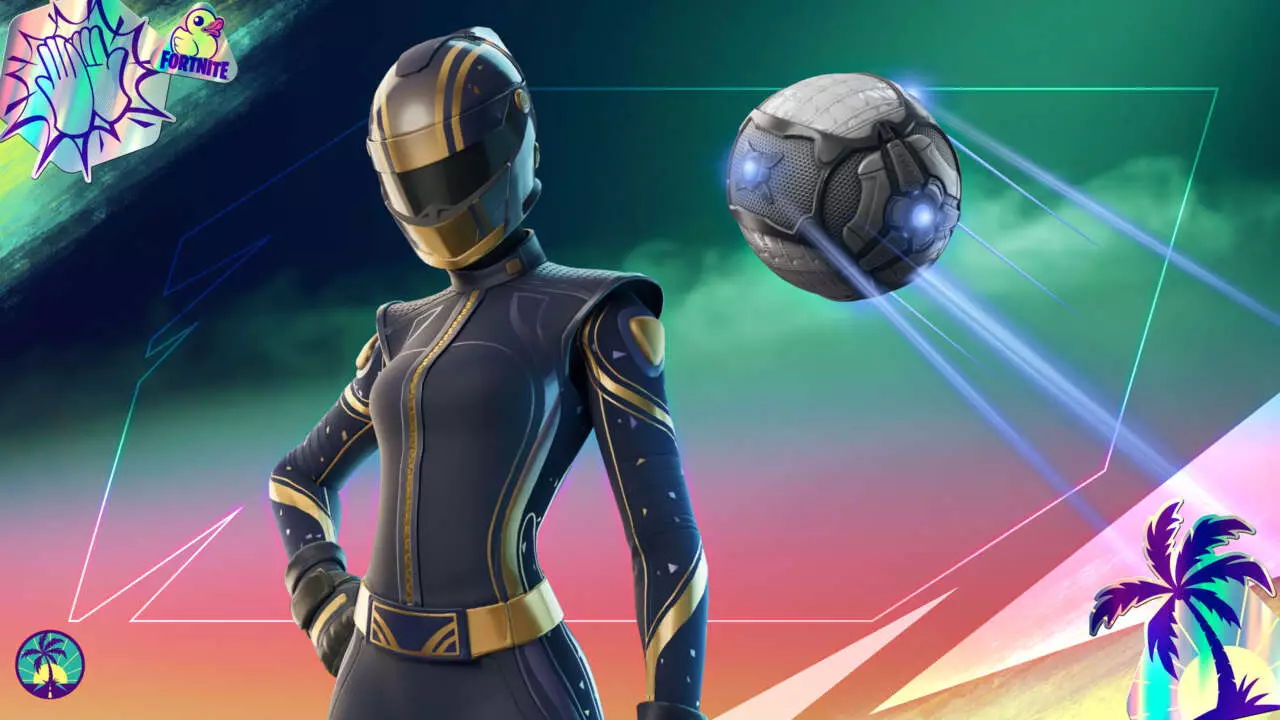This year’s Summer Road Trip event marks a significant milestone in the gaming landscape, blending the best aspects of Rocket League and Fortnite into an engaging, reward-filled spectacle. At its core, the event isn’t just about earning cosmetic items or flaunting flashy cars; it’s a bold statement on how developers are leveraging cross-game collaborations to invigorate player engagement. The highlight—a sleek Chevrolet Corvette ZR1—symbolizes more than just a virtual prize; it embodies nostalgia, status, and the innovative spirit of gaming synergies. However, beneath its shiny surface lies a strategy that benefits both Epic Games and Psyonix, fostering increased player interaction, brand loyalty, and a shared universe experience.
The event’s real brilliance lies in its ability to entice players from both titles to participate actively. Fortnite fans get access to exclusive skins and challenges, while Rocket League enthusiasts gain entry into a broader universe of rewards that segue into Fortnite aesthetics. This mutually beneficial setup elevates the event beyond a simple crossover, transforming it into an immersive experience that encourages repeated play, social interaction, and ongoing engagement. The carrot—the Corvette ZR1—is a symbol of achievement, but the real prize lies in the game’s ability to seamlessly connect two beloved titles, engaging two diverse gaming communities simultaneously.
Designing Challenges That Push Player Creativity
One of the most interesting aspects of this event is how it balances accessibility with challenge. The quests are structured to cater to a wide range of players—those who prefer casual, quick matches, and those seeking more intense, skill-based tasks. For instance, unlocking the glossy Rocket League ball glider is straightforward: start a private match with custom mutators, no matter your skill level or game mode preference. This simplicity ensures even new or casual players can participate without feeling overwhelmed, fostering inclusivity.
Conversely, unlocking the Fortnite skin, Hairpin, requires 15 epic saves in online matches. This task demands a more active effort and encourages players to adopt defensive strategies, coordinate in team battles, or simply focus on honing their skills. The mode of choice—Heatseeker—serves as an efficient means to complete this challenge, with the game’s mechanics naturally increasing saving opportunities. The deliberate design of these tasks subtly promotes gameplay that’s both strategic and skillful, reinforcing the central theme of player mastery while remaining accessible enough to sustain casual participation.
This duality—ease for some and complexity for others—reflects a thoughtful approach to event design. It’s not just about hoarding rewards but cultivating a varied experience that appeals to different playstyles. That the event also introduces time-gated milestones, like the unlock requirement of five matches with the Corvette wheels equipped, adds a layer of anticipation and long-term engagement. It rewards persistent effort, turning a simple seasonal event into a mini-experience that encourages continuous participation over time.
The Power of Strategic Collaboration and Nostalgia
Beyond the mechanics and rewards, this event exemplifies the power of strategic brand collaboration in gaming. The cross-promotional nature fuels excitement because it plays on fan nostalgia and brand recognition. A Chevrolet Corvette ZR1 is more than just a vehicle; it’s a symbol of speed, style, and performance. Players are not only rewarded with a virtual car but are also emotionally invested in the idea of owning a piece of automotive excellence within their favorite games.
Furthermore, the inclusion of exclusive Fortnite skins such as Hairpin—an elegant reimagining of the Pitstop design—adds value that appeals to cosmetic collectors and aesthetic enthusiasts. The addition of music and digital items like a Red Hot Chili Peppers jam track enhances the cultural appeal, making the event way more than just about in-game items. It becomes a celebration of pop culture, nostalgia, and community, blending different worlds into a unified gaming experience.
It’s a brilliant move by Epic and Psyonix to leverage such iconic brands, capitalizing on the power of shared audiences. These collaborations create buzz, foster social media chatter, and motivate players to complete challenges, not merely for the rewards but for the sense of belonging they evoke. As such, this event is a testament to how savvy partnerships can elevate a seasonal promotion into a cultural phenomenon, setting a precedent for future crossovers.
Final Reflection: More Than Just a Summer Event
This Summer Road Trip isn’t just about unlocking digital goodies; it’s a reflection of how modern gaming thrives on interactivity, community, and brand synergy. It challenges players to step outside their comfort zones, whether by defending in Rocket League or strategizing in Fortnite, all while offering meaningful incentives at every step. In an era where content is abundant and fleeting, this campaign stands out because of its clever design, cultural relevance, and the genuine excitement it generates. It sparks a conversation about what’s possible when top-tier brands and games intertwine—creating an experience that’s as dynamic and fast-paced as the Corvette ZR1 itself.

